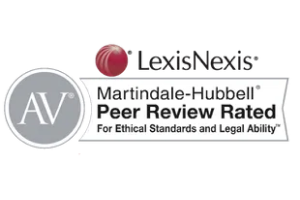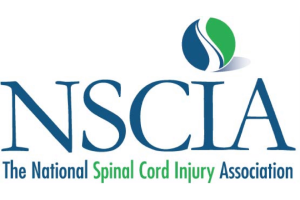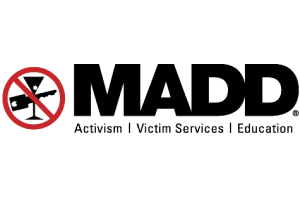Food Poisoning
Atlanta, Georgia Food Poisoning Lawyers
Food poisoning lawsuits involve unique legal issues and are best handled by a trial attorney who has expertise in the areas of food safety and foodborne illnesses. The Atlanta lawyers at Ragland Law Firm, LLC have handled many different types of food poisoning cases involving recalled or adulterated food products, contaminated meat or produce, undercooked or negligently prepared food, and outbreaks of foodborne illness. They are knowledgeable about the latest medical research concerning the causes, diagnosis and prevention of Hemorrhagic Colitis (E. coli poisoning), Hemolytic Uremic Syndrome, Salmonellosis, Campylobacteriosis, Guillian-Barre Syndrome, Listeriosis, Shigellosis, Clostridium Perfringens Poisoning, Botulism, Norovirus, Hepatitis A, Toxoplasmosis and other foodborne and waterborne diseases. Learn more about the Types of Foodborne Illnesses which occur most frequently or pose the greatest public health threat in this country.
The Atlanta personal injury attorneys at Ragland Law Firm, LLC also have considerable experience representing persons who have suffered anaphylaxis due to an allergic food reaction, or sustained injuries when they bit into or swallowed a foreign object in a food or beverage product. They are able to handle food poisoning and other types of food safety lawsuits in Atlanta, Rome, Carrollton, Peachtree City, Newnan, Columbus, Macon, Albany, Statesboro, Savannah and all other parts of Georgia. They are prepared to pursue liability claims against any negligent food company, corporate farmer, raw meat processor, restaurant, fast food franchise, bakery, party host or grocery store which produced or sold food that was unsafe, spoiled, contaminated, improperly cooked, or subject to a recall.
Negligently Prepared or Contaminated Food Products
Cause Many to Suffer Foodborne Illnesses
Even in this country, the toll of death and disease linked to contaminated, adulterated, or negligently prepared food is substantial and greatly underappreciated by most consumers. There are at least 31 different pathogens (including bacteria, parasites, viruses and fungi) known to cause foodborne illness. According to estimates released in 2011 by the U.S. Centers for Disease Control and Prevention (CDC), one in six Americans (or 48 million people) get sick with a foodborne illness each year. Most food poisoning is “sporadic” and involves one individual becoming sick from an adulterated food source. However, between 400-500 “outbreaks” of foodborne illness are investigated by local and state health departments in this country each year. These food poisoning outbreaks can involve as few as 2-3 people, or as many as several thousand victims. The most serious cases of food poisoning are usually caused by various pathogenic bacteria such as E. coli 0157:H7, Salmonella, Campylobacter jejuni, Shigella, and Listeria monocytogenes. Fortunately, most cases of food poisoning result in relatively mild acute gastroenteritis which usually resolves within a few days to a few weeks. Most people recover with little or no medical treatment, and usually without any long-term health consequences. However, food poisoning can lead to severe gastrointestinal illness requiring hospitalization and/or other diseases with bacteremic, neurological, hepatic, renal or other serious and life threatening conditions. A 2011 report from the CDC conludes that foodborne illnesses result in approximately 3,000 deaths and cause nearly 130,000 Americans to be hospitalized every year. Some researchers have estimated the annual food poisoning death toll in this country to be as high as 9,000. Children, pregnant women, elderly adults, and persons who are immunocompromised are the most at risk for suffering complications arising from food poisoning.
What Human Diseases Can Be Transmitted by Food or Water?
There are many different infectious diseases that humans can acquire through the consumption of food, water or beverage products which are contaminated with various types of microbial organisms. Many types of foodborne illness are caused by bacterial pathogens such as Escherichia coli, Salmonella, Listeria, Campylobacter, Shigella, Staphylococcus aureus Clostridium botulinum or Clostridium perfringens. Other foodborne illnesses are caused by viral pathogens such as Hepatitis A or Norovirus. Certain parasites such as the Toxoplasma gondii species can also cause foodborne illness. Several of these organisms are considered waterborne pathogens which can be transmitted through both drinking water and pool water. Outbreaks of recreational water illness have been linked to contamination of pool water by Shigella, E. coli, Campylobacter jejuni, Hepatitis A, and Norovirus.
Most episodes of food poisoning are relatively isolated incidents involving a single individual or a small number of people who are usually part of a family or other group. However, there are instances of widespread outbreaks of food poisoning which affect many members of the consuming public. Most widespread outbreaks of foodborne illness involve foods contaminated with E. coli or Salmonella pathogens. Humans need only consume a very small number of E. coli or Salmonella bacteria to become infected and suffer illness. Ingestion of E. coli pathogens can lead to enteric infection, Hemorrhagic Colitis and, in some severe cases, a serious condition known as Hemolytic Uremic Syndrome (HUS). Ingestion of Salmonella bacteria can lead to an infectious disease called Salmonellosis which, in some cases, results in a potentially debilitating condition referred to as Reactive Arthritis (“Reiter’s Syndrome”). Consuming food contaminated with the Camplyobacter jejuni bacterium can cause an infectious gastrointestinal disease known as Camplyobacteriosis and, in some cases, a peripheral nervous system disorder known as Guillain-Barre Syndrome. Shigella bacteria can also be transmitted via food, thereby resulting in human infection and a disease known as Shigelliosis which sometimes leads to HUS, Reactive Arthritis or a functional gastrointestinal disorder called Post Infectious Irritable Bowel Syndrome. Other foodborne illnesses include Listeriosis, Perfringens Poisoning, Foodborne Botulism, Acute Viral Hepatitis A, Norovirus Gastroenteritis, and Toxoplasmosis.
Who Can Be Held Liable for Damages in a Georgia Food Poisoning Lawsuit?
There are many potential defendants in any foreign object or food poisoning lawsuit. In general, any company or individual involved in the production, packaging, storage, distribution, preparation or sale of a recalled or unsafe food or drink product may have potential liability for illness or death suffered by the consumer. Depending upon the laws in the state where the food poisoning occurred, cases against any particular defendant can involve claims of negligence, negligence per se (i.e. violation of a state statute), breach of contract, breach of warranty, and statutes which impose strict liability for defective or dangerous products. Of course, each case is different and determining who is liable under these various legal theories for an isolated occurrence or widespread outbreak of foodborne illness depends upon the facts and evidence presented. In any food poisoning lawsuit, the Defendants might include any of the following potentially culpable parties:
- Individuals or companies whose negligence caused or allowed beef, pork, chicken, turkey or other meat to become contaminated during the process of slaughtering, handling or packaging of the raw meat or any prepared product containing meat;
- Individual farmers or corporate entities who negligently caused or allowed raw fruits, vegetables or other produce to become contaminated during their growth, harvest, transport, storage or packaging;
- Corporate food companies, beverage companies, bottlers or other entities which were negligent in their mass production of prepared, ready-to-eat, canned, sealed, bottled, and packaged food or drink products which were advertised and sold to consumers;
- Trucking companies or other distributors which failed to transport, refrigerate, store or handle food or beverage products in a safe manner;
- Meat markets, grocery stores and other retailers which failed to store, refrigerate, inspect, handle, prepare or package meat, produce or other food items in a safe manner;
- Grocery stores, convenience stores, drug stores and other retailers which negligently failed to timely remove from their shelves or otherwise adequately prevent the sale of any food or beverage product which they knew or should have known was contaminated, unsafe, adulterated or the subject of a recall;
- Owners or operators of restaurants, cafeterias, bakeries, concessioners, caterers or fast food franchises who were negligent in their inspection, refrigeration or storage of raw food ingredients, or who negligently failed to properly cook, handle or prepare foods served to a customer;
- Employers of persons infected with communicable diseases who then handled or prepared food or beverages thereby causing transmission of the infection to persons who consumed that food or beverage; and
- Homeowners, catering vendors and event hosts who provided their guests with contaminated, undercooked, negligently prepared, or other unsafe food.
Lawsuits Involving Foreign Objects Found On
or Within a Food or Beverage Product
Microbial pathogens are not the only causes of injury when food or beverage products are consumed. Every year, thousands of people are injured because of a visible foreign object or deleterious substance in a food or drink product they consume or attempt to consume. In reported cases, such “foreign objects” have included gravel, coins, wood splinters, pieces of metal, glass fragments, human fingernails or parts of fingers, human or animal hair, insects, small rodents, animal fecal matter, and non-meat parts of a slaughtered animal. In addition to the shock and disgust of seeing, chewing or swallowing such noxious materials, consumers sometimes experience choking or suffer physical injuries to their teeth, jaw, esophagus, or intestines. Ingestion of a foreign object can also lead to foodborne illness. Consumers choked, injured or sickened by foreign objects may have viable civil claims against the individuals or companies responsible for preparing, selling and/or serving the adulterated food or beverage product. Learn More about Food Foreign Object Injury.
Georgia Food Act
In 1956, the Georgia legislature passed the “Georgia Food Act” which today is codified at O.C.G.A. §§ 26-2-20 through 26-2-41. In sum, this is a consumer protection statute intended to prevent the production, distribution, sale or service of adulterated, mislabeled or misbranded foods to consumers in Georgia. Violations of the Georgia Food Act can give rise to both criminal penalties and potential civil liability. Among other things, the Georgia Food Act prohibits the production, delivery or sale of any “adulterated” food or drink intended for human consumption. The statute defines “adulterated” food or beverages to include, among other things:
- products which contain a “deleterious substance” or foreign objects not intended for human consumption;
- products which include unsafe levels of pesticides or other poisonous substances;
- contaminated meat or the product of a diseased animal;
- products which are contaminated, unwholesome or unfit for human consumption because they were prepared in filthy or unsanitary conditions;
- products whose inferiority is concealed.
The Georgia Food Act also addresses the mislabeling, misbranding and false advertising of food and beverage products.
Foreign Object and Food Poisoning Lawsuits
Based Upon the Georgia Food Act and Other Georgia Statutes
In many cases, a victim of food poisoning or persons injured by foreign objects will be able to show that the food or beverage they consumed was “adulterated” as defined by the Georgia Food Act. Thus, in many Georgia unsafe food lawsuits, the plaintiff will be able to assert a claim for negligence per seby alleging that the defendant(s) produced or sold an adulterated food or beverage product in violation of the Georgia Food Act. The Georgia Court of Appeals has held that a violation of the Georgia Food Act can constitute negligence per se in a Georgia lawsuit brought by someone who sustained an injury due to a foreign object, or who suffered a foodborne illness because of contaminated or negligently prepared food.
O.C.G.A. § 51-1-23 is another Georgia statute which gives rise to civil claims on behalf of persons who suffer death, illness or injury due to contaminated, negligently prepared, or adulterated food or beverage products. That statute provides as follows:
“Any person who knowingly or negligently sells unwholesome provisions of any kind to another person, the defect being unknown to the purchaser, by use of which damage results to the purchaser or to his family, shall be liable in damages for such injury.”
Steps To Take in the Case of Food Poisoning
Persons who suspect they are suffering an episode of food poisoning should consider taking the following steps:
- Seek medical attention especially if any of the following symptoms are present: chest or severe abdominal pain, rapid heart rate, confusion or disorientation, joint pain, fever, signs of dehydration, persistent or prolonged vomiting, any blood in the vomit or diarrhea, and/or diarrhea which has persisted for more than 48 hours. Young children, elderly persons, pregnant women, and anyone who has a weakened immune system are at higher risk for food poisoning complications and should always seek medical attention immediately upon the onset of any food poisoning symptoms.
- Request that any medical care provider take and test blood and/or stool samples so that the pathogen causing the food poisoning can be identified.
- Drink plenty of clear liquids to prevent dehydration, avoid dairy products, avoid any foods or drink containing caffeine (e.g., coffee, tea, cola soft drinks, chocolate), and avoid solid foods until the vomiting and/or diarrhea has subsided.
- Do not take any anti-diarrheal medications unless a doctor has advised you to do so.
- Keep and preserve all packaging materials and all parts of the food that was not consumed so that it can be examined or tested if necessary.
- Obtain and keep all purchase orders, receipts, credit/debit card records and all other documents reflecting purchase or receipt of the food.
- Immediately report the food poisoning to the county or local health department so that it can investigate while relevant evidence may still be available for inspection and/or testing.
- Call and register a complaint with the negligent restaurant, store or company which produced, prepared or sold the offending food / beverage product.
- In the case of a meat or packaged food product purchased from a grocery store or similar retail establishment, a report should be made to the appropriate state and federal agencies which regulate that part of our food supply: the Georgia Department of Agriculture, and the U.S. Department of Agriculture (for any meat, poultry, egg or milk product) or the U.S. Food & Drug Administration (for all other food products).
- Take detailed photographs of any undercooked or adulterated food believed to be the source of the food poisoning.
- Ask other persons who ate the same food or were present at the same location whether they also experienced any similar food poisoning symptoms and if so, document each person’s name, address, phone number and details about their experience.
- Make a written note of all foods and beverages consumed during the 72 hours before and after the food poisoning symptoms began and included the date, time and place each meal or snack was consumed.
- Contact a qualified food poisoning lawyer to obtain legal advice about your potential case and the steps which ought to be taken to gather and preserve relevant evidence.
Obtain Legal Representation from an Atlanta Food Safety Litigation Attorney
Contact us if you or a family member has contracted a foodborne disease and desire to consult with a qualified Atlanta food poisoning lawyer. The trial attorneys at Ragland Law Firm, LLC are also available to represent consumers who have suffered a food allergy reaction or were injured by a foreign object in their food. The firm’s food safety lawyers are willing to pursue personal injury claims and lawsuits for persons who have suffered anaphylaxis, bodily injury or foodborne illness anywhere in Georgia, Alabama, South Carolina, Florida, Tennessee and other southeastern states. Learn more about our Food Safety Case Results. The law firm of Ragland Law Firm, LLC is located near Perimeter Mall in Dunwoody, Georgia, so the office is especially convenient for residents of Atlanta, Roswell, Alpharetta, Marietta, Smyrna, Sandy Springs, Decatur and Duluth, Georgia.









